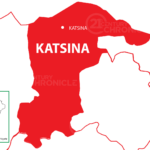Daily Trust Saturday visits border markets and communities across Katsina, Jigawa and Sokoto states and explores the social and economic costs of the recent border closure in areas famous for horse, cattle and grains economy.
It is a land of baobab trees and historical figures. Locals fetch water from the nearby well, expressing themselves in Hausa. Their village lies exactly 15 kilometres away. Plains stretch into the distance and are a delight to the eye. Then there are the markets, such as the MaiAdua International Market, as well as those of Maigatari, Garki, Daura and Illela, where a visitor can witness the matchless energy of Nigeria’s rural markets. Calabashes which are smoothened, painted and beautified in the markets by dedicated artists form part of this energy and highlight just one detail of the cross-border economy.
On the Illela-Sokoto road are hundreds of onion stores or barns, which help to define the landscape. This is an onion farming country. All these communities were impacted when the Nigeria-Niger border was shut.
Total collapse
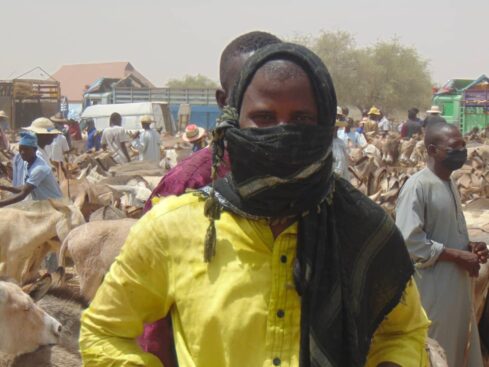
“Our economy has completely collapsed on account of the border closure. There are fewer horse dealers today, unlike before. Now, there are not up to 100 sellers here. In the past we had more than 3,000 sellers coming here every market day,” remarks Alasan Jobi, the chairman of Horse Sellers Association, Maigatari International Market, Jigawa state, in an interview with Daily Trust Saturday in early March.
400 camels rustled
Nigeria’s border with Niger Republic was recently shut by the Economic Community of West African States (ECOWAS) as a fallout of the coup in the latter country. This crippled economic and social ties, fueled rural poverty and made many to eat once a day or not at all. Shut borders mean a good number make use of illegal routes as they convey goods or cattle, and some encounter bandits while doing so. This is very true of Illela in Sokoto State where over 400 camels were rustled recently, according to a camel herder/dealer who spoke to Daily Trust Saturday at Illela market.
‘Damagaram’
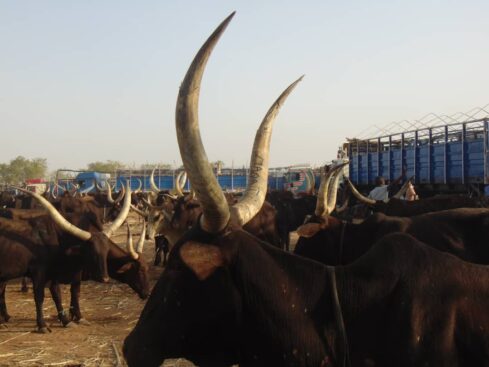
In Illela, the chairman of grains dealers speaks of targeted assassinations against members of his group as they travel through the border area. Meanwhile, in Kongolam, Katsina State, teenage boys convey luggage to nearby Maimujiya in the Niger Republic.
‘Damagaram, Damagaram’, they chant as taxis arrive at the Kongolam motor park. The boys mention that they use wheelbarrows and push their loads along an illegal route throughout the day. Four boys will push a fully loaded wheelbarrow to Maimujiya, a 15-minute’ walk for N2,500. Then they return to Kongolam to await the next taxi and when it arrives they begin to chant ‘Damagaram, Damagaram.’
20 illegal routes
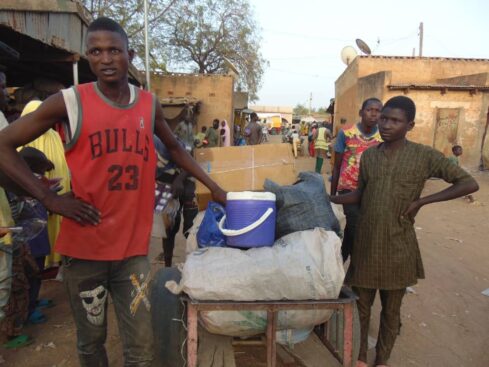
Sani Daura, not real name, a taxi driver in Daura, mentions that there are more than 20 illegal routes leading from Kongolam to Maimujiya in Niger. He adds that there are 8 checkpoints along one of the illegal routes and that the wheelbarrow pushers and people from both countries are allowed to pass if a fee is paid to security officials stationed along the route. However, the payment referred to could not be independently confirmed by Daily Trust Saturday.
Bakeries in trouble
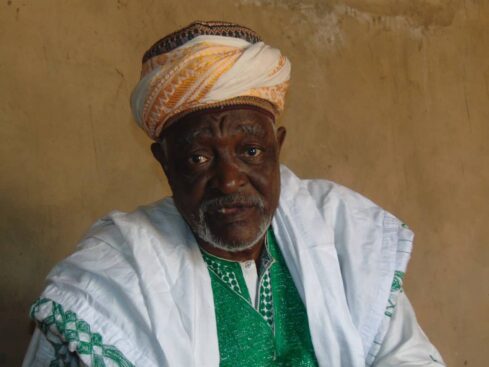
The border closure has taken life out of the local bakeries in Daura, which used to supply bread to Niger Republic. In addition, bakeries in Daura have had to close on account of a variety of factors, including the rising cost of fuel and flour, which coincided with the border closure. The closure also coincided with the rise in the exchange rate of the CFA, Niger’s currency, vis-a-vis the Naira, meaning that much more money is required to buy goods from traders in Niger, creating a level of frustration on the Nigeria side of the border. The border closure has had an adverse impact on the local taxi service too, especially taxis that ply the Kongolam-Damagaram route. 70 per cent of youths in 5 local governments of Daura Emirate can no longer continue to trade with Niger, Daily Trust Saturday is told.
From N10m to N2m
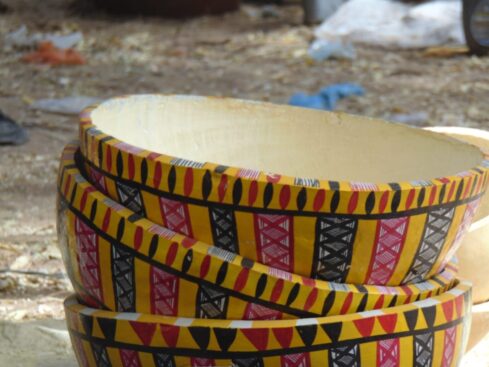
Another view of MaiAdua market
“Before the closure of the border, I transacted up to N10 million, but now, I cannot do N2 million worth of transactions on a market day. Maigatari is a commercial town. We have no river here. We have nothing to do except seasonal farming. We are partners with Niger, and once you shut the border you immediately put us in a cage. We are in a cage,” explains Mohammed Abdullahi, the secretary-general, Donkey Merchants, Maigatari, using a metaphor to draw attention to the slump in the local economy.
Wood to Agadez
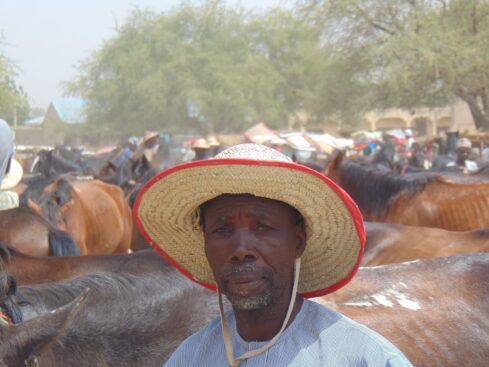
Boys convey luggage to Maimujiya from Kongolam
Ahamed Diddiri Ahamed, the district head of MaiAdua, comments on the large-scale trade in wood across the border. “People export wood from Nigeria, right up to Agadez in Niger Republic. It is a big business. When they sell wood, they then buy salt and come back with it. We can have several trailer-loads of logs going to Agadez from Daura. After the sale, they either buy livestock or salt, then they come back. But all this has stopped and many were suddenly out of business,” he said.
Ahamed, who is also the Galadiman Daura, provides statistics thus: “One-quarter of visitors to the MaiAdua market on a market day are from Niger Republic. When the border was closed, the number reduced. They cannot bring their goods to sell, and they cannot buy goods from here as well.
“For us, poverty is one major impact of the sanctions and border closure. It has thrown a lot of our people into poverty. Nobody has measured the level of poverty here, but we have seen it. Many people are out of work and business. Business supporters, transporters, labourers loading trucks and trailers and those selling food have been cut off from their means of earning an income.”
Only 5 trailers now
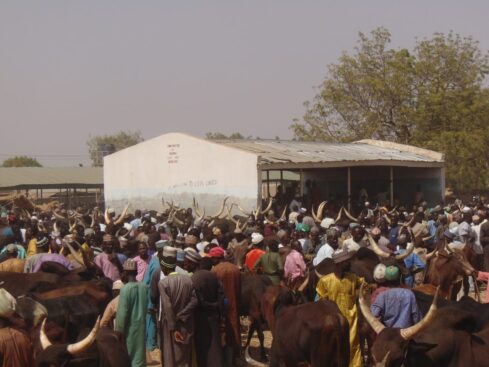
Another view of MaiAdua market
Sani Kalmalo, the chairman of Grains Market, Illela, has done a census on the number of trailers turning up at the community, saying, “This market used to accommodate 150 trailers and each one will carry four hundred bags of grains. During the border closure, in two weeks it was hard to find five trailers because people from Niger were not coming.” An economy that once flourished across extensive plains had started to limp.
Bello Isa Ambarura, who represents Illela/Gwadabawa federal constituency, also revealed, “Most of the people who engaged in small-scale businesses have completely become poor. When I say small-scale business, I mean people who can buy a bag of soya beans and sell same in Niger. But now, they are not able to cross the border.”
Wrappers to Konni
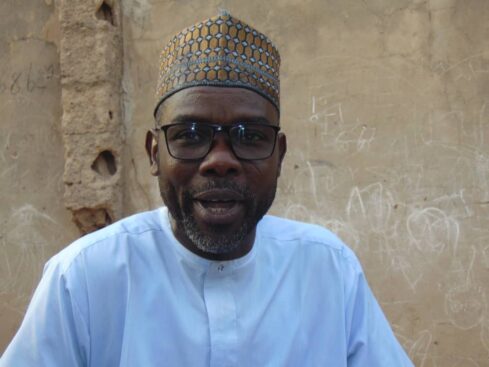
Habu Daura speaks of widespread poverty
He explains the inner workings of the local economy: “In Illela, people can buy one or two bags of grain, go to Niger Republic or Konni and just sell it. A woman engages in buying wrappers for women, known as Atamfa in Hausa. They can buy the wrapper in Sokoto and take it to Konni to sell. Most of the people in Illela Local Government engage in this kind of business. During the border closure, all these activities were immediately paralysed.”
Extensive value chain
Yushau MaiAdua, the chairman of livestock section, MaiAdua International Market, opens up on the ecosystem of the market, saying, “There are people that load the animals into trailers and are paid for this. Some control aggressive animals and others provide grass and feed for the cattle. Some young men tag the animals based on the buyer’s request. Others put sand in the trailers, which is essential when transporting the animals to distant places like Lagos. Others load the cattle. Some clean the trailers and we pay all of them. Some others bring feed for the cattle.”
Rising prices
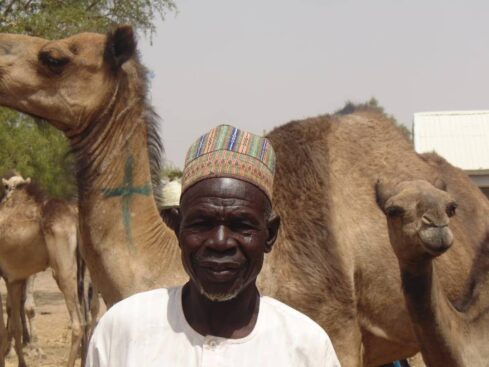
He has been selling camels for 40 years
“Because of exchange rate, the price of an animal is higher than before. If you buy a camel at N100,000 now, you can sell it at the rate of N250,000. It is hard to make a profit these days. This is because 1,000 CFA is equal to N2,500,” explains Muhammadu Idris, the chairman of camel dealers at the Maigatari market.
Not a single horse
There was not a single horse on sale at Garki market when Daily Trust Saturday visited. Ahmadu Ganau, the chairman of Horse Market, Garki said, “Horses are very expensive; therefore, nobody is coming to make purchases. Before the closure of the border, we were selling one big horse between N70,000 and N100,000. Now, one horse costs N500,000. Last week, somebody asked to buy a small Sudan breed of horse at N700,000 but the sellers did not agree.”
Running at a loss
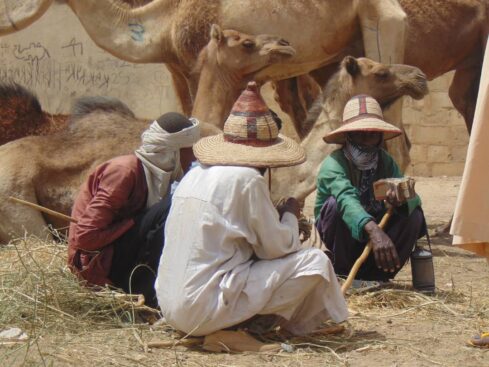
Yau Damagaram, a Nigerien and dealer in the camel trade, had been going to the MaiAdua market punctually for the past 30 years, but recent financial difficulties made him to avoid going to the market for eight months.
Hear him: “I have spent over eight months without coming to this market because of hardship. If we come to the market we run our activities at a loss. That’s why I have not been coming. I have been coming to MaiAdua market for over 30 years. I enjoyed the market then. But in the last 10 to 15 years, the market began to change and trading was not like before.”
1,000 youths seeking work
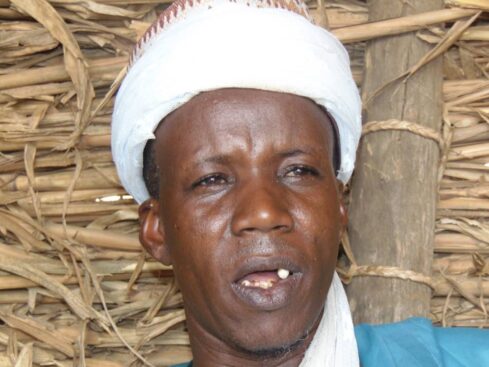
Sani Abdullahi, the secretary-general, Donkey Merchants, Maigatari speaks on widespread unemployment in the area, saying, “As a result of this closure, there are more than 1,000 youths here looking for work to do. Their source of income is here.”
Not up to 500
Abdullahi provides data on the sale of donkeys, which he ties to the exchange rate: “In the past, 2,000 donkeys would be brought to Maigatari from Niger and other places on market day, but now, you can’t even see up to 500 donkeys on sale. It is not the sanction alone that contributed to the problem of price, this problem of exchange rate contributed more. Before, we were buying one CFA between 1,000/1,100, but now we buy it at 2,500/2,700. In the past, we bought one big donkey at N120,000, but now, the big one goes between N150,000 and N170,000.”
Camels from Diffa and Damagaram
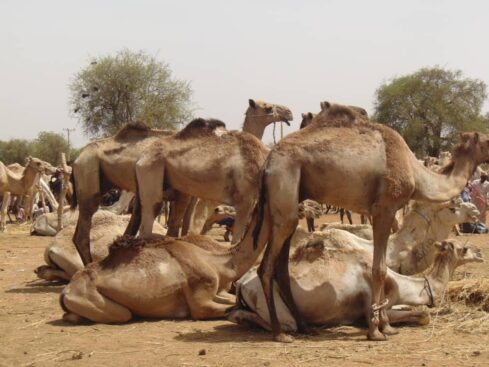
“I bring camels from Diffa and Damagaram in Niger Republic, all the way to Maigatari. Before the sanctions, I was bringing 300 camels to Maigatari, but now, the numbers have dropped. In the past, one big camel cost N500,000, but today, it will cost N1 million,” says a respondent who did not wish to be identified.
I used to have millions
Salisu Ibrahim of Masanawa Quarters, Daura, recalls a time when he had a lot of money to support his trade. He said, “Two years ago, I had N1.5 million to do my business. I would go to Kano and MaiAdua market to buy items. Every week I would go to Mashi market on Thursday, but since the closure of the border, my trade declined. The money with me will not exceed N150,000. Presently, the capital in my hand is exactly N100,000.”
No capital
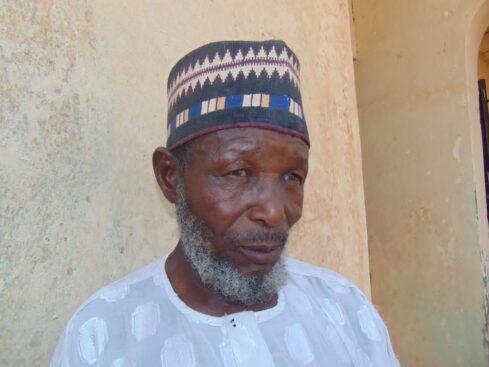
Muntari Halilu of Daura, who trades in horses and camels, explains that lack of capital has impacted on his trade with Niger.
Hear him: “We buy horses from Zinder and bring to MaiAdua, our home. Initially, I conveyed up to 5 horses from Zinder every week, but now, I cannot go to Zinder because there is no capital. There are many people like me just hanging around doing nothing.”
N1m won’t buy much in Niger
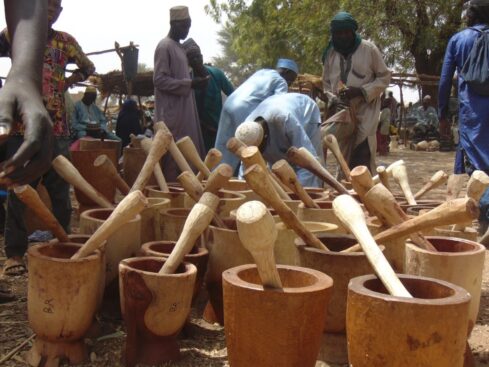
Habu Daura, who has been involved in cattle trade, provides a graphic picture of the economic situation, implying that most people are on the verge of financial ruin.
“Before, if you had N1million you could go to Niger to buy two, three or four cows, but now, one N1 million will buy only two or one cow. If you pay transport money from here to where you can buy the cow, it will reduce the profit. The profit will be little.”
2 wives, 11 children
“I don’t go to Niger these days because I don’t have money now. I have not gone to Niger for about 10 months. I am not doing anything now except as a village head. I cannot survive on what I am getting here. I have 11 children and 2 wives. It is tough surviving.”
From N2,000 to N12,000
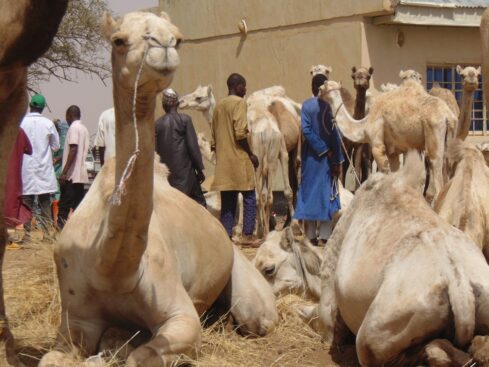
More people have fallen into poverty. One of them said: “There are more poor people now than before. There are many people here in my area who have not been able to go to Niger. They are uncountable. It is N2500 to I CFA. If you want to go to Damagaram from here, you will pay 6 CFA. It’s about N12,000 from here to Damagaram. Before, if you had N1,000 or N2,000, it would be enough to take you from Daura to Damagaram, but now, N12,000 will take you from Daura to Damagaram. There is no money because there is no trade taking place.”
We are brothers
“When the Europeans came, they made a distinction between us, but we are one. We intermarry. We are brothers. When the Europeans came they created a French colony and a British colony. We all live under emirs. The people of Niger have their emirs and we have ours. We marry from each other. We speak the same language and practise the same religion,” Abubakar Magaji, the custodian of the history and culture of Daura Emirate reveals.
Vehicles impounded
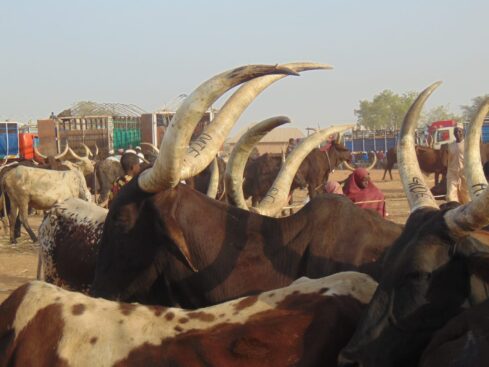
Galadiman Daura adds that the customs have been impounding trailers heading to MaiAdua, saying, “Because of border closure and food shortage, any vehicle coming to MaiAdua gets impounded. When the comptroller-general of Customs came, we told him about this. Now, it has been agreed that those impounded grains will be released to the people with the undertaking that they will sell it within Nigeria and not to take it to Niger.
“Our requirement within the local government is somewhere around 19 trailers of maize every week. If any trailer comes, they will keep saying it is going to Niger. That’s their suspicion. But it is business that feeds markets.”
20kms, 20 checkpoints
He elaborates on the problem thus: “When the comptroller-general came, there was a settlement to the effect that trailers should not come to MaiAdua for the moment. They will stop in Daura, 25 kilometers from here and use smaller vehicles to bring them. This gives us additional cost. If you have one trailer-load and stop in Daura, you have to offload it; after offloading, you have to get smaller vehicles and load it all over again and make several trips. If you bring 100 trailer-loads of maize, you will load them to MaiAdua, using smaller vehicles.
“What is the wisdom behind this? It forces us to pay higher. Probably, there is extortion on the Daura-MaiAdua road. They have a lot of security checkpoints on the road, which are uncalled for. This is a distance of just over 20 kilometers and you have more than 20 checkpoints of various organisations.”
‘My parents are from Niger’
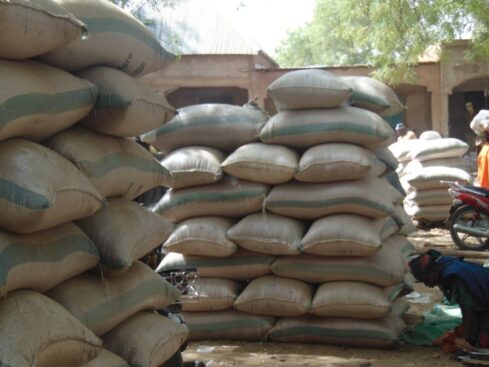
Rufai Isa, the guide and interpreter who hails from Illela Local Government, speaks on his family: “My father and mother are from Niger Republic; they hail from Konni Local Government in Tahoua State. I was born in Illela, where I grew up. I schooled here and also went to Usman Dan Fodio University, Sokoto, where I read Agriculture.
“Sixty per cent of people in Illela have parents who are from Niger. My wife is also from Konni in Niger. I am both Nigerien and Nigerian.”
Highlighting the intimate trading link between both countries, Galadiman Daura said, “In our market here, at least a quarter of the visitors are from Niger. They could be traders who come to buy one thing or another and go back. Even today, with the borders closed, they will still make up the one quarter.”
‘We supply maize to many markets’
He explains the special bond between the markets and how one market is linked with another or several others, saying, “It is a business activity that feeds another market. For example, of all the maize that comes here, apart from our own requirement, there is one market we supply to, that is, Maigatari in Jigawa State. There is a market in Babura. There is Garki market in Katsina State; there is Zango too. We supply them maize.”
Two times its size
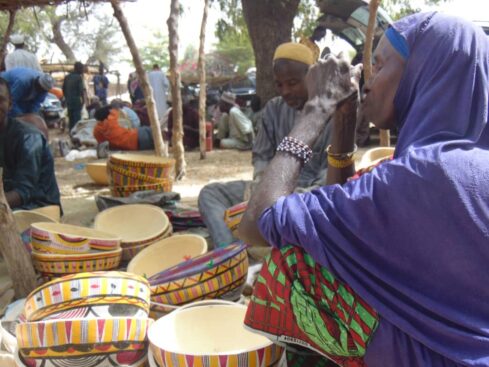
Hausa land before the colonial encounter was a massive continuous territory incorporating parts of Nigeria and Niger. “If Hausa-speaking parts of Niger were to be added to Nigeria, Nigeria would be very big because it would extend to parts of Benin, Burkina Faso and a greater part of Niger Republic. A greater part of the southern Niger Republic will be under Hausa land. It means Nigeria will be two times its size. Niger is very large in terms of land mass. If you divide Niger into two and add to Nigeria, you are almost getting the same size as Nigeria,” says Professor Attahiru Sifawa of the Department of History, Sokoto State University.
Dangote Mai Rago
Bashir Mashi nicknamed Dangote Mai Rago is a major factor in the sheep, ram, and goat trade at MaiAdua market. Hear him: “This ram was sold previously at N70,000. Today it costs N120,000. The red Sokoto goats sells at N20,000, Sahelian goat, a special breed from Niger, depending on its health and if it is fat, starts from N25,000-N30,000.”
How can he survive?
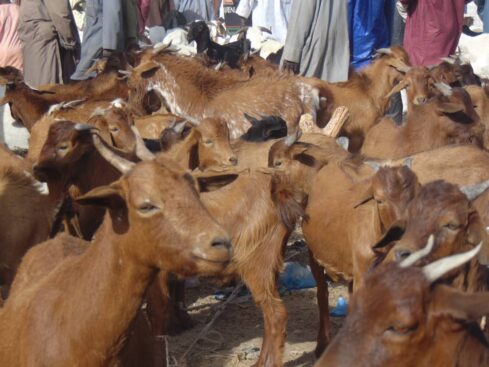
“People are dying, people are hungry. If a labourer works for a day and makes N1,500, and he buys a mudu or measure of masara at N1,600 now, meanwhile, we pay him N1,500, how can he survive with this? People eat once a day. Some are not eating anything. Everywhere, you see beggars. No shelter. There is nowhere to go, nowhere to move,” declares Habu Daura, illustrating a profound level of financial ruin.
From Damagaram to Garki
Ado Magariya, not real name, says, “I sell camels. For 40 years I have been selling camels. I import camels from Magariya under Damagaram. I hail from Magariya. From Magariya I take camels to Dingass, Damagaram and other places. I bring camels from all these places to Garki. There were more camels here before the closure of the border.
60% of local bread
Salisu Daura, the chairman, Daura Emirate Youth Association refers to a link between the Daura bread industry and Niger: “60% of the local bread baked in Daura, Mashi and Dutsi is taken to Niger Republic. We take foodstuff to Niger and also buy foodstuff from Niger. Some take maize, millet, local rice, cucumber.” However, he states that the trade in bread with Niger has declined considerably.
N2m for one horse
Inflation means that a horse is being sold at N2 million a, Daura argues: “We go to Niger to buy cows, sheep, even horses. In the past one horse was bought at less than N300,000. Today, it is difficult to get a young horse at N800,000. You can find a horse going for N500,000 but it will be more than 10 years old. We don’t want the old horse because we are marketers. Now, you can get a horse costing over N2 million. It is because of the inflation in Nigeria.”
8,000 jobless youths
Daura speaks of unemployment in the area: “We have more than 10,000 youths in the 5 local governments who trade between Nigeria and Niger. 70 per cent of them cannot continue to trade. Today, only about 2,000 are able to trade with Niger.”
Only N20,000 profit
Bashir Galadima hails from Niger and points to a downturn in profits: “I sell horses and bring many from Niger to Nigeria. I bring 10, 15 from Niger, but now, I can only convey 5. I am not making money from the trade. My profit was usually not more than N100,000, but now, I make N20,000. I bring horses from Damagaram. I trek; and it is a distance of more than 300 kilometers. It is a four- day trek.”
1,000 cows
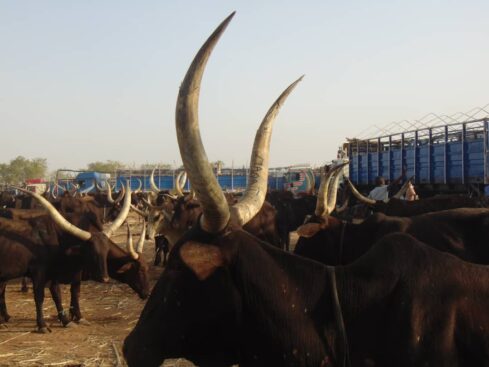
“When the border was shut, many people from Niger were no longer coming to our market. Before the closure 3,000 cows were brought from Niger to Illela each market day. With the border closure we were only receiving 1,000 cows, also brought through illegal routes,” explains Mohammed Danladi, Sarkin Shanu Illela, lamenting the major crash in numbers.
Rise in banditry
Lawal Ibrahim, Sarkin Zangon Illela, points to a rise in banditry in the locality, even with the open border. “Another fresh problem here is banditry because whenever bandits see camels they will attack. The bandits collected the camels of some of my people, over 100 camels. This was two weeks ago near Gada. This is the third time this year. Meanwhile, over 460 camels were stolen from my people who were travelling from Niger Republic down to Illela.
4 encounters
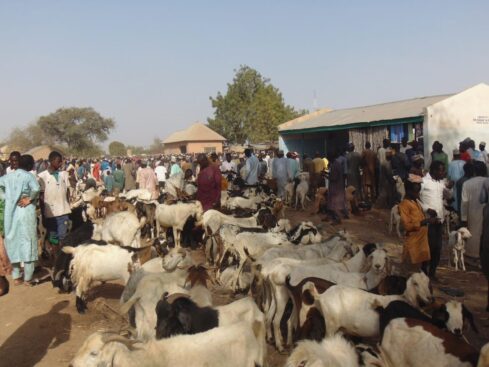
Muhammadu Hassan is from Ruwawuri, Tangaza Local Government in Sokoto State. On four different occasions, his camels were rustled.
His words: “The first attack was along the Gada road. They collected 19 camels and we were coming from Illela. This was six months ago when the border was closed. The second attack was along Gada road when the border was shut, and they stole 17 camels. On the third attack, I was coming from Dogon Dutsi in Niger, close to Ruwawuri and they stole 8 camels. The rustlers spoke Fulfulde. The fourth attack occurred when I had just sold camels. I was attacked and all the money taken.
Attack on grains traders
Kalmalo says that grains traders are attacked by bandits whenever they are conveying grains to Niger.
Hear him: “They just kill people, they don’t take any bag of grains. Eight traders were killed in the last 3 years.” This is a new disturbing development that has not yet featured in the news.
Happy traders
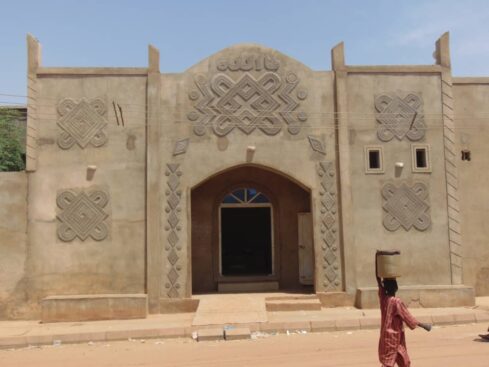
Danladi, Sarkin Shanu Illela shares an idea on the recent reopening of the border: “People of Illela and those in the market are happy with the opening of the border. People are bringing more cows now. During the time when the border was shut, many people from Niger were no longer coming.”
Niger, best place to go
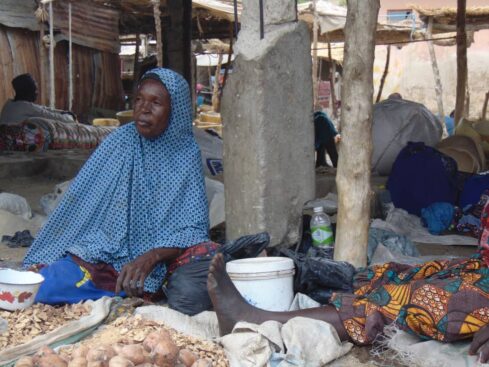
Professor Yusuf Adamu speaks on the impact of the border closure on aspects of scholarship at the Bayero University, Kano (BUK). Postgraduate students make an annual visit to Niger for a field camp. Hear him: “If you want to study drylands, Niger Republic is the best place to go. Students take note of physical processes like weathering and erosion, as well as human processes, such as settlements and markets. At the moment, we are in limbo. Now that sanctions have been removed, we hope that this year, we would be able to go back to Niger.
He reveals, “Students are more educated when they see things they never imagined. Things that don’t work in Nigeria actually work in Niger Republic. Niger is like a second home to most of us. We go there every year.”
Merchants, Maigatari, using a metaphor to draw attention to the slump in the local economy.
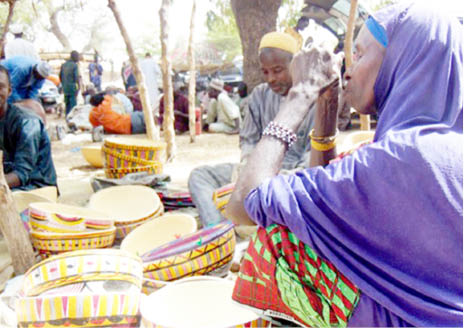
 Join Daily Trust WhatsApp Community For Quick Access To News and Happenings Around You.
Join Daily Trust WhatsApp Community For Quick Access To News and Happenings Around You.

